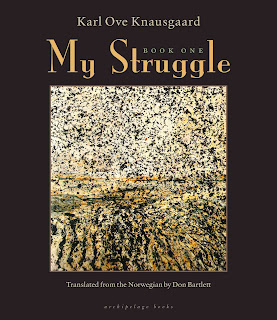When my father bragged about finishing an 800 page book in a week, I was surprised and intrigued. He doesn't read much so I had no idea what kind of book would grab his attention so completely. Typically, I'm not very good at taking other reader's recommendations and I had serious doubts about taking my father's advice. But there was something titillating about The Truth About the Harry Quebert Affair that seemed to tell me that this was no ordinary "affair". I decided to give it a go. (Full disclosure, I read it in Finnish.)
Harry Quebert is a famous novelist and Marcus Goldman, his protege. When the body of a young girl, missing since the 70's, is found on Quebert's property, America is shocked to find out that Quebert's most successful work was based on his relationship with a 15-year old girl. And now the girl's body has been found rotting under the roses of Quebert's garden. Goldman on the other hand is riding the last ripples of the success of his first novel and dealing with a crippling writers block. When he gets the news of Quebert's arrest, he drops everything and heads to Aurora, a coastal town in New Hampshire, where Quebert has been living for over thirty years.
The premise is simple enough, but the plot is dense and easily keeps the reader's interest through the whole book. The Harry Potters and Millennium sagas of this world may approach similar lengths but often involve multiple storylines that run in circles only to keep the plot going. Dicker is able to build a story that evolves naturally and (mostly) doesn't resort to cheap tricks. The novel feels well rounded and intimate despite its vast scope.
The Truth About the Harry Quebert Affair is a rare work because it is both accessible and profound. On the surface it is a crime thriller, but it never really plays out that way. The story is driven equally by Goldman's personal growth and the labyrinthine social connections of small town America. It succeeds on the strength of its characters - not only Marcus and Harry but the whole ensemble - and the classic story that draws equally from Nabokov's Lolita and Twin Peaks. Unlike other popular murder mysteries of the past years - Gone Girl and Girl on the Train, for example - Harry Quebert is completely un-cynical.
Its biggest success is that it truly grabs the reader from the first pages and doesn't let go. Dicker's storytelling acumen is notable as is his ability to write with humor and wit. Without his ability to bring levity to some mundane plot twists, the novel would read more like a run-of-the-mill detective story than the character study that it aspires to be. Readers will find favorite characters in the large cast, mine was the no-nonsense cop Gahallowood, whose verbal sparring with Goldman make for a great buddy comedy in itself.
Overall, I highly recommend this one. It may or may not endure as a classic of the genre, but for anyone who wants to spend quality time with a book, there is little wrong that can be done by picking up The Truth About the Harry Quebert Affair. As always, I had some minor objections, but listing them here would be a waste of everyone's time. Harry Quebert is so good that even my father read it. In a way, there is no higher praise.












